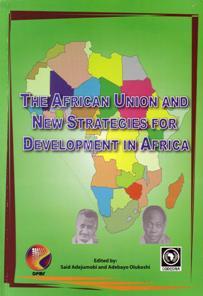The African Union and New Strategies for Development in Africa
Keywords:
African Union, Strategies, Development, AfricaSynopsis
CODESRIA, 2009, 318 p. ISBN:996672663-2
The early twenty-first century witnessed remarkable attempts by Africa’s political leadership to promote regional integration as a means of fast-tracking economic progress, facilitating peace and security, consolidating democratic gains, and promoting the general welfare of the African people. The transition of the Organization of Unity (OAU) to the African Union (AU), as well as the foisting of a new economic blueprint for the continent-the New Partnership for Africa’s Development (NEPAD)- combined with the growing role of the regional economic communities (RECs) in harmonizing and creating subregional norms and standards in the political and economic arena suggests a new trend towards regionalism in Africa.
However, the current regional trend in Africa has received very little scholarly attention especially in a systematic and comprehensive way. This is due partly to the fact that the processes are currently unfolding and there is still uncertainty in the outcomes. Poor documentation and the dearth of primary materials (especially from the regional institutions) also contribute to the lack of scholarly work in this area. This study assembles the voices of some of the most seasoned African and Africanist scholars who have constantly, in one way or another, interacted with the integration process in Africa and kept abreast of the developments therein. The essence of this book is to analyze those processes-teasing out the issues, problems, challenges, and major policy recommendations, with tentative conclusions on Africa’s regional development trajectory. The book, therefore, fills major knowledge and policy gaps in Africa’s regional development agenda.
The book constitutes a major reference material and compendium for a wide range of readers-students and scholars of African affairs, policy makers, and all those interested in the past, present and future of Africa’s development process.
Downloads






